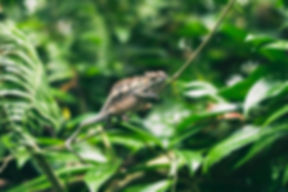
Fri, Aug 26
|Online Recording
RECORDING Virtual Professional Speaker Series: The Rise and all of Salt Marsh Harvest Mouse Lineages


Time & Location
Aug 26, 2022, 7:00 PM
Online Recording
About the event
Listen to a recording of the event which occurred on July 26, 2022 here: https://drive.google.com/file/d/1G0VosLlllT2Rz8MTFS-rsHY5fHperdTE/view?usp=sharing
The Rise and all of Salt Marsh Harvest Mouse Lineages
The San Francisco Bay area is home to several species, subspecies, and populations of wildlife that are
uniquely adapted to coastal wetland habitat. Of these, there may be no better representative of marsh
habitat health than the salt marsh harvest mouse (Reithrodontomys raviventris). The salt marsh harvest
mouse is found only in the San Francisco Bay Area wetlands. It is highly restricted to marsh habitat and
utilizes several unique adaptations – including strong climbing and swimming skills, and the ability to
drink salt water – to persist in the saline, semi-aquatic environment. The salt marsh harvest mouse, like
other San Francisco Bay Area endemics, has lost a significant amount of historical habitat due to
conversion of marsh to primarily anthropogenic land uses. As a result, they were one of the first species
listed on the California and United States Endangered Species lists. My work applies genetic and
genomic tools to help better understand the modern range of salt marsh harvest mice and the
evolutionary relationships between distinct populations within the Bay Area.
Cody Aylward, PhD Candidate, UC Davis
I am a conservation geneticist with ten years of experience working with threatened and endangered
mammals. I am broadly interested in applying genomic tools to practical conservation outcomes, and in
linking conservation research to land use. I earned a Master’s degree in Wildlife Science from the
University of Vermont using spatial and genetic data to determine how American marten (Martes
americana) recolonized parts of the northeastern United States and how landscape conditions may
facilitate future population recovery. I recently completed my PhD program in Ecology at UC Davis, using
genomic tools to reveal the evolutionary history, present distribution, spatial habitat requirements, and
resource use of endangered salt marsh harvest mice in the SF Bay Area. In addition to research, I have
spent the past several years teaching courses at UC Davis, such as the Conservation of Wild Mammals
Laboratory, and I have served as a member of the American Society of Mammalogists Conservation
Committee, working to ensure conservation policy accurate reflects the best available science.